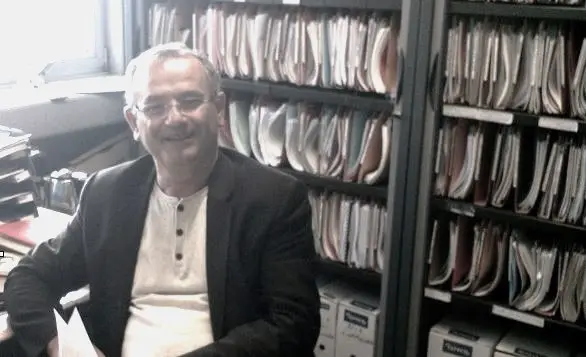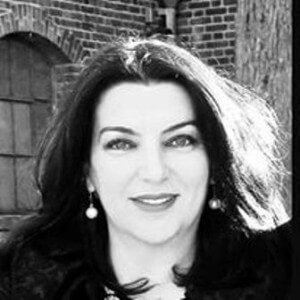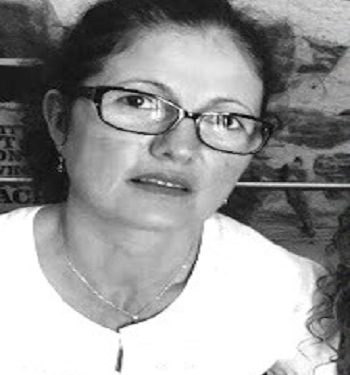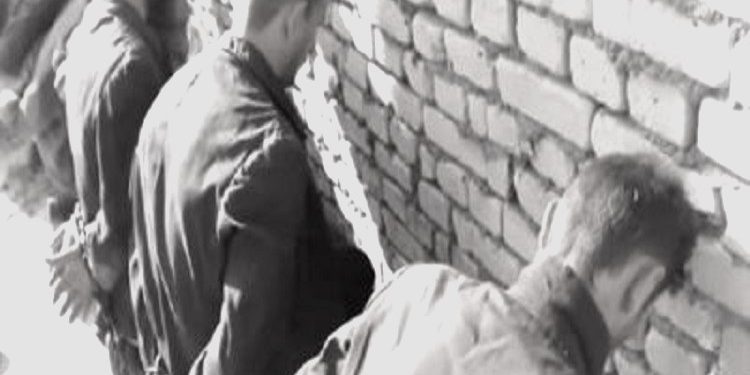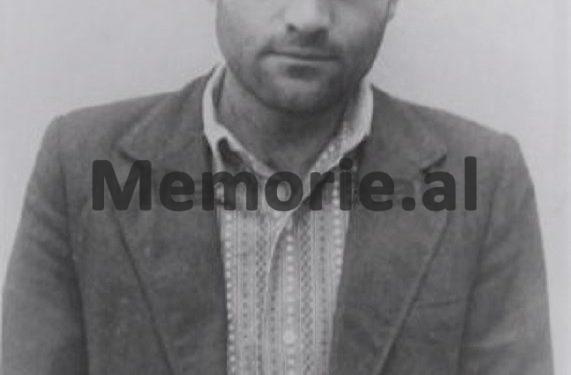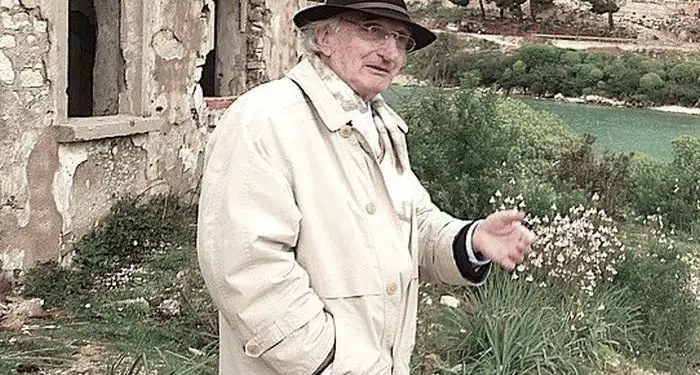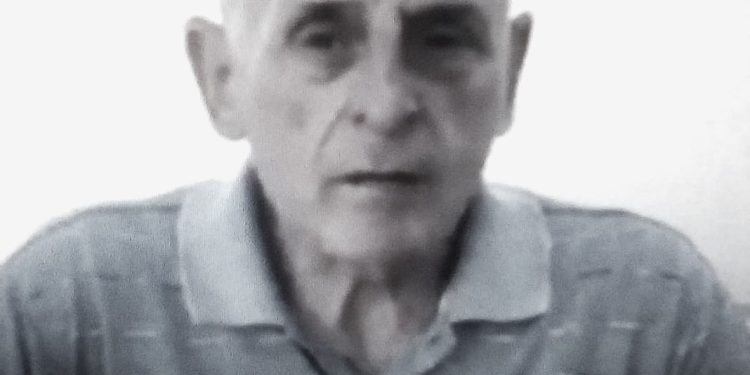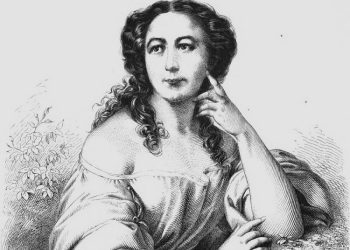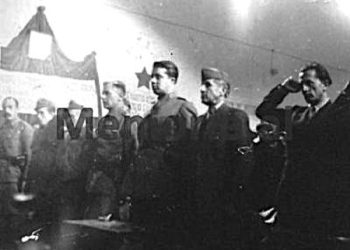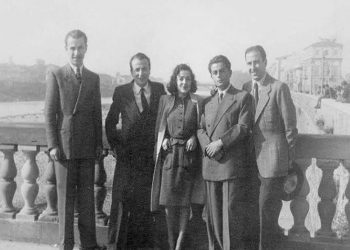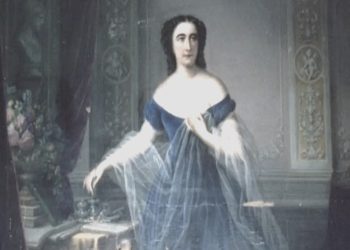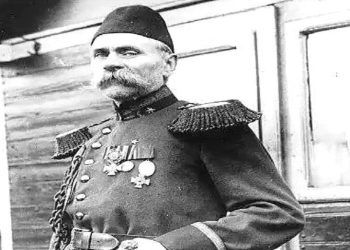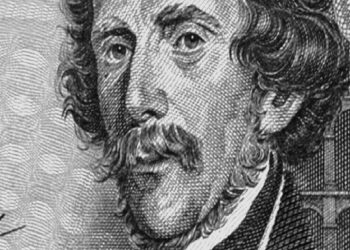By Marjana BULKU
IN THE PLACE WHERE THE CITY IS VIEWED FROM ABOVE…
BUGJUNECI…..
Memorie.al / It is among the few settlements in Dibër, where Peshkopia can be seen as if in the palm of your hand, with the Drin winding and winding its way past the northern valleys, below lie the neighborhoods of ‘Bulke’, ‘Dobrovë’, ‘Kamen’, ‘Pazar i vjetër’, which escalate towards the city center, where the twin boulevard memorizes people, steps, history. There, Astrit Rama spent his early childhood years, an intellectual whose life resembles an unwritten book, filled with untold stories that wander between Peshkopia and Paris, Spaç and Kutallisë (Berat), the barbed wire separating the two Albanian Dibras, the 17-day prison in Skopje, the prison camp in Belgrade, the return to Paris…!
HISTORIANS WHO CHANGE LIVES
The citizens of Peshkopia know and do not know Astrit, since the magnitude of intellectuals educated in the West is very difficult to understand from four city neighborhoods, where four hours of television programs cannot nourish hundreds and thousands of lives with knowledge and freedom, much less with hope! But the fate of intellectuals who are born at the wrong time, I would never say in the wrong place, because that place full of beauty is like a crown over the city, it is absurd, sometimes it is even tragic.
The fate of Albanian cities where the lack of intellectuals comes from the unjust attack made on them by Lilliputian minds, is even more tragic. Astrit, the child who walked for about an hour to attend classes at the “Demir Gashi” school, excelled in his studies although he humorously tells us that his mother often engaged him with family chores, as the eldest child he was.
His past has so much to tell…! He has spoken very little about himself and on this day in January 2019, it is I, Iliri and Milva (his wife), who stirred his strong and fresh memory, with precise dates, names, details that he often starts and tells with emotions, where one reads pain, wounds, stirred by a kind of 25-year internal storm, within sixty-some years of life, where the 70s, will change the course of his life, for better or worse, I cannot say! But I can say with great certainty, that years like those full of waves and storms that man surprisingly causes to man in his own country that has so little responsibility, care and love for its citizens, sculpted the young anti-conformist, who could not reconcile with evil, after touching the magic of freedom, albeit temporarily.
“There was a moment when, within the framework of France-Albania cultural relations, some of the best foreign language students of the Faculty of History and Philology in Tirana would study in Paris at the Sorbonne University, under a 5-year contract that was renewed every year, based on results. And thus began the sharp turn in the life of a young Albanian, from Dibra, towards Paris, Nice, and Corsica, which from browsing through the publications of the time to real perception, were far, very far away”… -Astrit expresses, while pausing for a long time as he describes that snowy December 27 of 1970, in the unimaginable Paris.
FREEDOM
For students of literature and its history, freedom is the essence of creation; it gives life to reading and makes creative reflection on literary works and life itself in general…! This is exactly what I thought as Astrit recounted the ordeal of the relations that the Albanian embassy in France built with its citizens, inviting them to read Albanian newspapers every week, forcing them to wait for the leaders of the Politburo of poor Albania, who went and spent their holidays in Paris.
And I laughed and how could I not laugh, when Astrit listed dozens of reasons he invented to get rid of that obligation to read newspapers, where party-people unity was the key word, achievement, success and progress. It is understandable to me that a young man who enjoys “Doctor Zhivago” and navigates through the French masterpieces with history and feeling of Flaubert, would save himself the lost time, where freedom is conditioned, and a noose is put on him.
RETURN TO HOMELAND
What is it like to return to isolated Albania after studying, living, perhaps even dreaming under other horizons, having tasted the taste of freedom, when in our country you didn’t even know what it meant?! His two fellow countrymen would continue their diplomatic careers, while the fate of the Dibrani man goes through other paths, roads, and crossroads. Astrit’s story goes beyond the details of Konica and Migjen. The student, who had just returned from France on the Peshkopia Boulevard, stood out, attracted attention with his white, different skin, which challenged even the classic beauties of that traditional tour under the bridge, that July of 1975. And yet, returning to the homeland has the weight of longing for beloved family members, dreams and premises for the new life that is beginning to take its first steps.
He is denied the right to work as a teacher!
He is appointed a teacher in an 8-year school in the city. Strange to the point of absurdity where the long silence is a reaction and attitude. Astrit for a moment without speaking and me imagining that this appointment is the first slap, light, tiny, warning of a strong storm, that would await him in the cold Peshkopia.
FILE 790- Pages
For someone educated in the West, the appointment as an 8-year-old teacher constitutes dozens of reasons to feel disappointed, while the academic world, the journalism of Tirana, would greatly need a young man like him, educated in the West, with deep and certified knowledge, but Astrit did not feel like that, on the contrary; he would teach the students of Dibra French, the history of that country from which the arts that nourish the world with beauty originate. He says he also carried a small tape recorder to make learning more efficient and was perhaps the most admirable teacher for those lucky ones, but these “bourgeois revisionist methods that contradicted the traditional line of education” would turn into accusations against him.
I insist on taking something beautiful from his short work as a teacher and he recalls with great emotion a moment when one of the best students in the class was denied the right to participate in the central New Year’s evening, which was organized for the best students. The reason was his biography, a child with a bad family biography; he was denied many rights at that time, as many like Milva had experienced those tears caused by injustice that kills so much a child, who sees the world innocently. I approach Milva and in a low voice I say to her:
– “Don’t worry, this job will change”!
“Her tears seemed to me to turn into a rainbow of hope, under the light of my words”!
(P.S. Milva Nasuf, my article titled “The Stylist of the Silent City” refers to her)
– “I felt that I was being controlled”- he says. – “even when the school principal told me not to bring a tape recorder to school, even when others’ gazes did not follow my steps while my words and thoughts became rare, I understood that it was being fabricated and written about me, but I had never thought that I would be; “the French spy”, as they would accuse me!
On June 11, 1976, Astrit Rama was arrested in the school premises where he worked, on the charge of: “agent of the French government”, just three days before the end of the school year (June 14, 1976). His 790-page file, which he had browsed, contains pseudonyms beyond which are real people who resemble Kafka’s characters so much, with body and limbs but without brain and soul.
DUNGEON STORIES
The dungeon was dark, cold not only because of the absurd accusation that was made there but also because of the people who they entered, they left, they whispered, they slandered, they intimidated…! The prison began with a long investigation lasting several months amid slander and intrigue, meaningless questions and then the 313th prison of Tirana, to be transferred somewhere in Spaç. Eight years of prison in Spaç of forced labor, where 52 people slept in a room measuring 7 by 8, on straw mattresses and under windows without glass. My imagination finds it difficult to accept such a reality, as I hear him describe it as if he is mindful of every moment lived there, pushing the heavy wagons on the never-ending road.
Astrit recounts what no one has yet written about and I doubt whether I did good or bad, that I brought back those years where life collides hard, almost lifeless and nothing is known what may remain alive after this. I dare not ask him: how could he feel, what was someone like him doing with worldly French, in those dark cells, I had read Visar Zhiti, I had seen the paintings of Lekë Përviz…! Perhaps Astrit read the unreadable and answered abruptly what I did not dare to ask, thus completing one more testimony, in the long line of twins with his fate; -“I was lucky to survive Spaç prison, many of us were shot”.
BESA
The emotional amplitudes in the lives of convicted intellectuals transmit rare, human signals, full of values that it would be a sin not to analyze. This is how I would consider the relationship between Astrit and his father, who fearlessly bears the name Besë. A promise that he would not escape from Albania when he got out of prison, a fear that something else would separate them, keep them apart. A new uncertainty, a threat to life that became increasingly fragile under the conditions of that physical, psychological, and spiritual horror.
In 1982, Astrit was released from prison with an amnesty, out of 1100 prisoners, 400 of them would be released. At the exit, they were given a document, which the dry voice quoted and the even drier hand had to sign. That disgusting, meaningless, absurd text, which Astrit recited by heart, naturally would not be signed by him. – “You will come here again!” The voice roared even more iron than the cell. The fate of such individuals was known: spy or punishment. The tomorrow that seemed even more hopeless was flashing.
INTERNSHIP (1983-1989)
On September 29 of that same year (1983), Astrit was interned in Kutalli, Berat. Now not only was his patience coming to an end, but his health was also deteriorating. The tired heart, the terrible cold of the icy rooms of Spaç, etc., etc., were making the life of the young man without youth, even more difficult. And in such conditions when fate and health abandon you, the family remains the only one who suffers with you. That was the reason for not escaping, the trust given to the father, the hot tears of the mother, the sisters, are both suffering and reasons, to wake up to the difficult days of internment, which was even more cruel than imprisonment. Forced labor, physical, spiritual, mental violence.
One day when both patience and health came to an end, Astrit confesses that he walked on all fours, coughed up blood, his heartbeat exceeded 220 beats per minute and he could not stand up. But here are the bad moments and the friends who will remain like that forever. It was Mond Sejko who called the ambulance and thus left the internment camp in 1986, heading to the hospital, where he was recommended immediate heart surgery.
The face of his mother, the look of his father would be the best re-media, but also the wise words of his friends; “you only broke one leg, when the others have lost their lives”, were a little sunshine after the deadly storm. After the story that lasts about two hours, with lots of details, quotes, diaries of Astrit, I ask myself; How is it possible to treat a human life in this way?! A life that has so many beautiful things to give to life, family, friends, the city, Albania?! Why so much violence on the mind?! Why does this bitter legacy never end? How is it possible that the state, so barbaric towards its best sons?!
ALBANIAN DEMOCRACY
And how could a healthy democracy be born in Albania when the mind of that unfortunate country was violated, condemned, fled, mutilated. This life narrative also makes clear what was being born in the 90s and that we call democracy and now we know why it could never be such. Here Astrit recounts in our voices, (it is I, Milva and Iliri, who remember) the first names, the first meetings, until the eve of the birth of the First Opposition Party in Albania, Peshkopi, where naturally the presence and role of Astrit Rama was undeniable.
I have always believed that the right in Albania would be kept alive by such lives, which have been sacrificed for rights and freedom. When the violators of rights scream about rights, louder than those who have lost them, the fates of democracy and the countries that aspire to it, are at risk. We were a free people, because we agreed with slavery, which is dismantled by anti-conformists who do not agree with evil. And the walls of evil are ideological, but also moral and they are collapsed by people with such a history of suffering, that even suffering could not subdue them.
ESCAPE FROM ALBANIA
With a serious health condition, Astrit tells how they left Albania. It was September 24, 1991 and apparently with his departure, one of the most absurd walls in the world would collapse, the one that separated the two Dibras. Barbed wire, hail in the air and on bodies, another act of drama where the protagonists were Astrit, his wife Milva and a baby who would be born in a few months. Another ordeal with many unknowns, in a foreign land but where Albanian is also spoken.
Two hours of the investigator and the court that could sentence from several months to three years. They had crossed the border that separated them without permission, had been separating family members, initiatives for years. They are sentenced to 17 days in prison in Skopje prison and then sent to a prison camp in Belgrade. When she confesses to verbal and physical violence, I see Milva tear up. I feel that she is exactly the one who has suffered the most in those days. “I stayed covered under the blanket” – she says, I didn’t want to see anything, while Astrit was in the men’s camp”!
I only imagine how beautiful, smart Milva, that tearful girl with a bad biography, who couldn’t even go to the central evening, was next to her former teacher who consoled her that: “One day this job will change”! She was probably living the most difficult days of her life, but next to the man whose knowledge she acquired in the West, it would not be a waste. Only in Albania do knowledge, books, studies, values become worthless.
How painful this endless story is. Since this prison camp was monitored by many international organizations, Astrit, this excellent French speaker, will work as a UN translator, until June of that same year, to then settle in France, just a few months before the birth of the first joy of this family, Judita.
FRANCE, 25 YEARS LATER
He was treading again on those roads that he had once left in his youth. He carried with him the nostalgia of those years, the undeserved suffering that almost killed him in his youth, the untold pains of the Spaç prison, where there was only an acre of sky and a few hours of sunshine, the persecutions, the wiretapping in the internment room, at home, everywhere he spoke, he was silent. This western sky was loaded with so many dreams and hopes left half-abandoned, disappointments. But under this sky, a person can walk freely again, like 25 years ago, even though in our homeland this freedom is not understood, misused, and desecrated.
A former Sorbonne student finds it easy to orient himself to the roads, the centers, even though in his city, the roads were closed and life was imprisoned in the wildest camps of an inhumane system that denigrates its best sons. After some post-graduate studies, Astrit will be a functionary of the French state. From 2004-2007, he worked at the Ministry of Culture, in the Directorate of Culture of the Province of Brittany, the book distribution sector, towards libraries. From September 2007 to May 2018 (this is when he retired), he worked at the Ministry of the Interior, the Directorate of Territorial Collectivity, where he was awarded a work medal by the French state.
In my eyes, after listening to his story, reading the indictment, some fragments from the file, the reactions of acquaintances, the life of that man seemed to me a living museum, with leaves, bunkers, a museum with thorns, with dreamy skies, an unspeakable museum, which even if you listen to them, it is very difficult to understand and believe. But here are some stories that should not be left in silence, because along with silence, the sad truth dies, but also knowledge, reaction, our ever more fragile power, to correct the evil that killed our past, crippling our future.
Even though we talked and talked for a long time and, perhaps, many wounds should not be disturbed because they hurt, many questions swirl in my mind, unanswered, suspended…! What fate does the individual have in totalitarian societies?! What intellectual vacuum does the denigration of the elites cause?! How fatal was the fate of the family members who suffered such punishments? Why the homeland is systematically punished for its mind?! Why did Albanian democracy not correct this handicap inherited from previous systems?! Memorie.al




